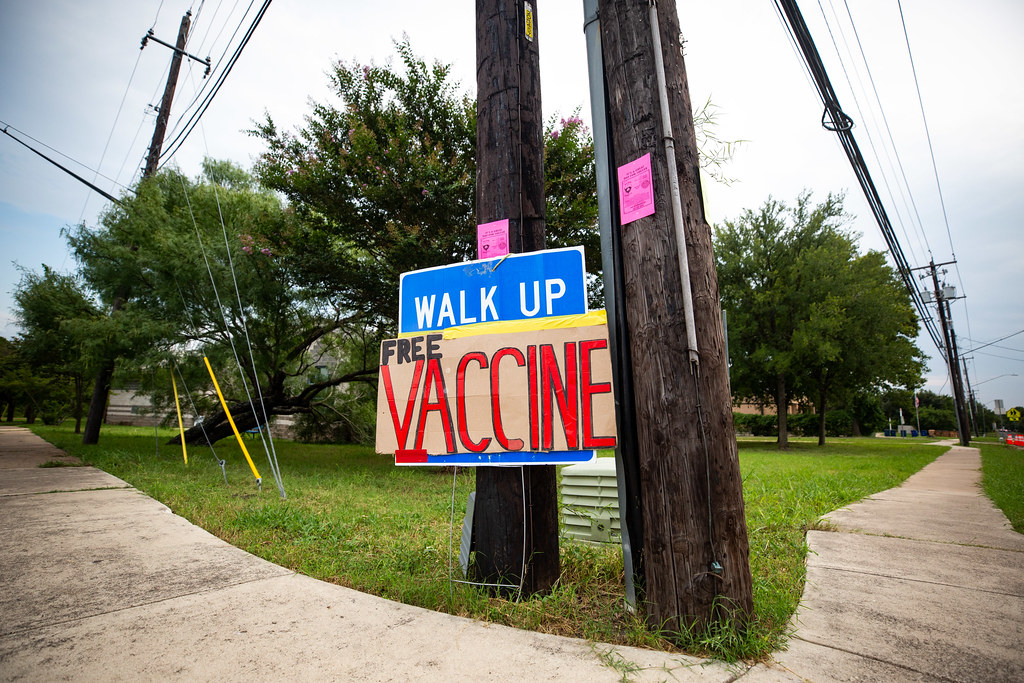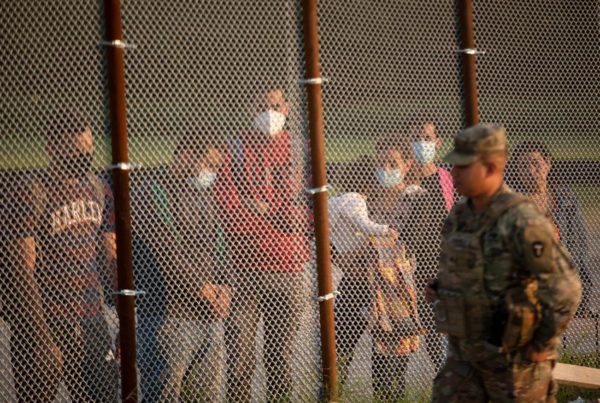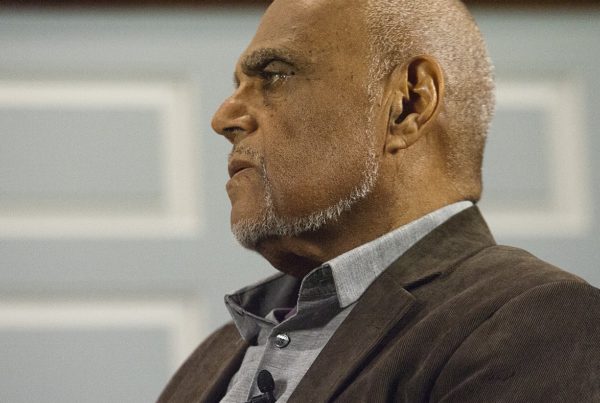Cases of COVID-19 are surging again in Texas, as the delta variant of the coronavirus takes hold particularly in areas with lower vaccination rates.
Dr. Peter Hotez, dean of the National School of Tropical Medicine at Baylor College of Medicine and co-director of the Center for Vaccine Development at Texas Children’s Hospital, says he warned in June that a resurgence was possible. A recent lull in vaccinations, despite the nationwide springtime push to get a shot in the arm of all eligible Americans, has allowed a more infectious variant of the virus to spread. Now, Hotez says it’s affecting people who thought they were relatively safe from severe infection.
Younger people are getting sicker than before:
Earlier in the pandemic, health experts were focused on protecting older people who were more vulnerable to severe cases of COVID-19. But now, with most older Americans vaccinated, the new delta variant is spreading among younger and unvaccinated people, and some of them are getting sicker than before. Hotez says being “healthy and fit” does not make a person immune to COVID-19.
“If you’ve been lucky enough not to get COVID so far, your luck’s about to run out because this is so much more transmissible, and we’re starting to see a lot of young people get sick,” he said. “We’re seeing a lot of young people be hospitalized, require ICU admission, intubation. … Taking care of yourself is great and eating a healthy diet. But it’s no substitute for virus-neutralizing antibodies – that’s what’s going to save your life.”
The delta variant is unlike any other:
Hotez says the delta variant replicates in higher amounts in a person’s nose and mouth, so it’s able to spread more easily. It’s also, now, the dominant variant in Texas. And while COVID-19 vaccines offer good protection against it, he says some vaccinated people could still get infected and pass it through asymptomatic spread.
“If you get vaccinated, you’re not going to get very sick; you’re not going to go to the hospital and you’re not going to go to the ICU and you’re not going to lose your life. But in the past, if you’ve been vaccinated with the original virus lineages, you also knew you weren’t transmitting the virus to other people. Now, that’s less clear based on what we’re seeing with delta,” Hotez said.
A “North-South divide” is emerging:
New COVID-19 cases are higher in places with lower vaccination rates, and in the U.S., Hotez says a higher proportion of those places are in the South. That includes Texas, where vaccination rates lag especially in many rural counties. Hotez says the best way to stem the spread is to increase vaccination rates in those places.
“Vaccination is probably the most efficient way to handle this pandemic right now. And if we could get everybody vaccinated who is eligible, we still have the opportunity to vaccinate our way out of this epidemic,” he said.
Are masks still helpful?
Especially in schools, where there’s a high concentration of young people under age 12 who aren’t yet eligible for vaccination, Hotez says masks will be a lifeline this coming school year. The snag is that schools in Texas can no longer mandate mask-wearing because of an executive order by the governor, though some teachers groups are asking for that to change.
“That’s your last backstop. So, you take that away and you’re not giving me much to work with here,” he said.
Masks are not a substitute for vaccines; Hotez urges everyone who is eligible to get vaccinated. But he says masks are an important tool right now to help slow the spread of the delta variant, especially in areas where it’s spreading more rapidly.
Sorting fact from fiction:
Improving vaccination rates also hinges, in part, on cutting through misinformation in the media. One false message Hotez says some far right politicians have been spreading is that vaccines are ineffective and a tool of governmental control. Spreading and believing that message could have serious health consequences, he says.
“We’re hearing that amplified in some of the cable news networks. We’ve got to somehow change that around, and really get people to understand that this delta variant is like nothing we’ve seen before in terms of transmissibility,” Hotez said.
The reality, he says, is that COVID-19 can have very serious short-term effects that can lead to hospitalization. It can also lead to longer-term conditions like so-called long COVID, which can last for six months or longer.
“That causes neurologic impairments, cognitive declines. COVID-19 does so much more than kill, and people need to understand that as well,” he said.
What about booster shots?
An additional vaccine dose may be necessary for people who are already fully vaccinated but may still be spreading the virus unwittingly. Hotez says a recommendation for a third Pfizer or Moderna vaccine, or a second Johnson & Johnson vaccine, is something health officials might consider over the next few weeks.
For more information about the spread of the delta variant in your community, view the CDC’s interactive map here.













